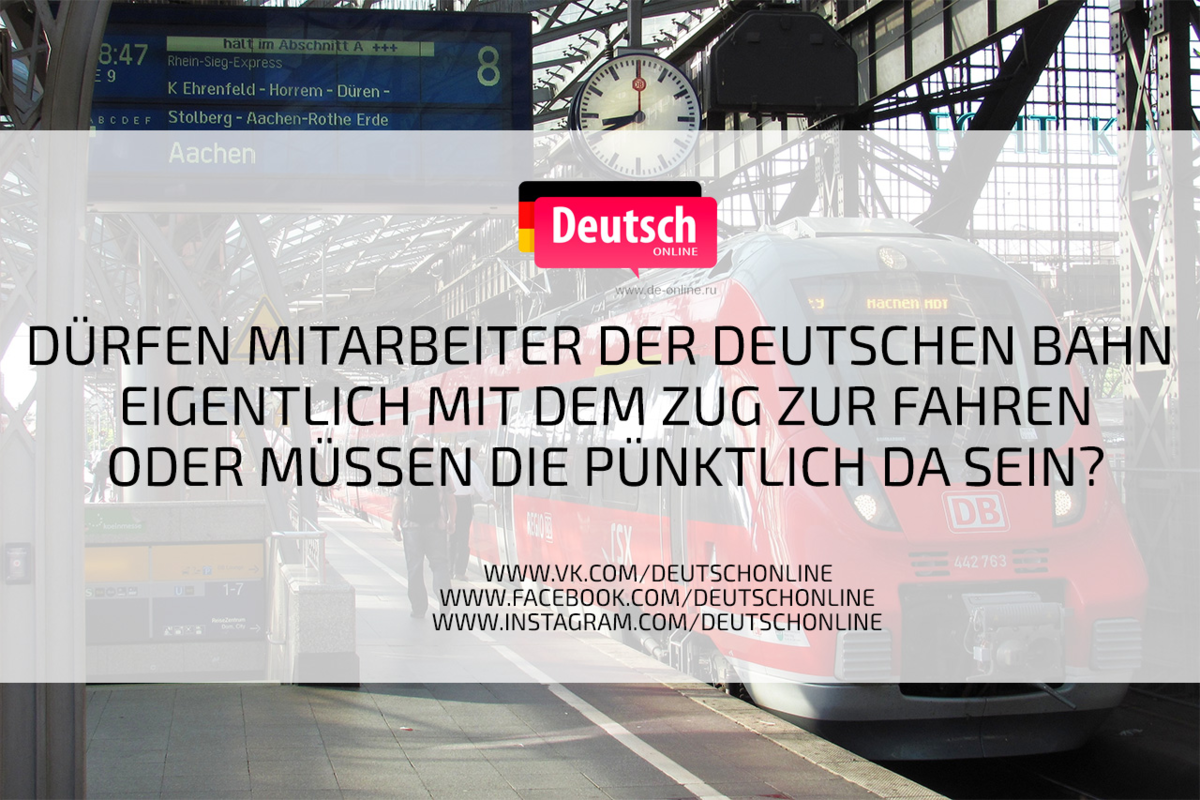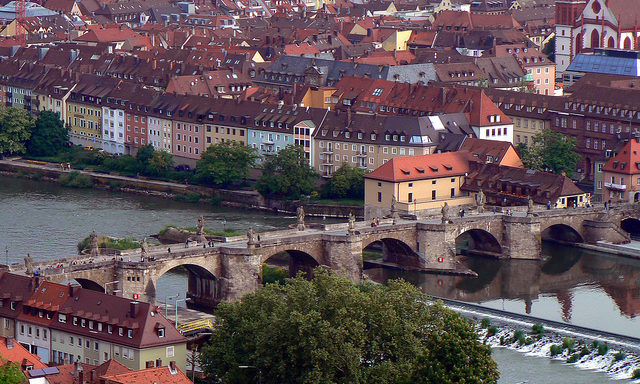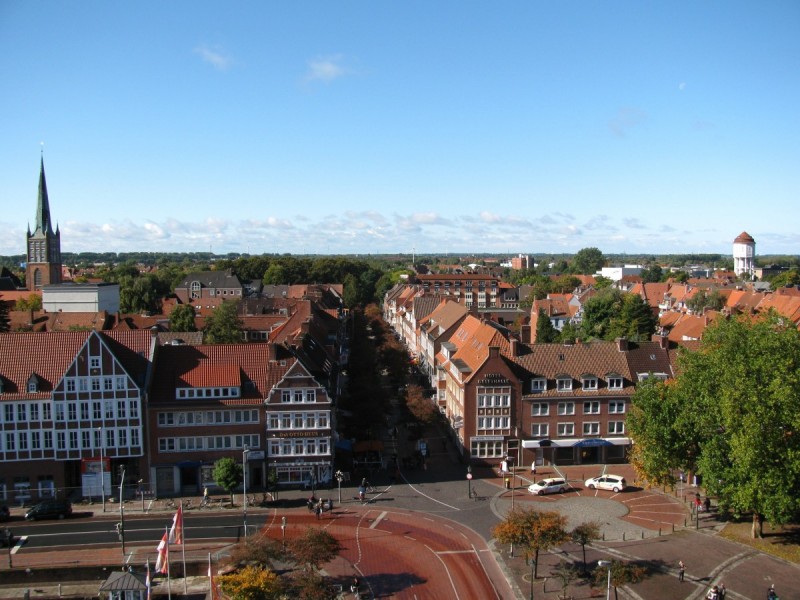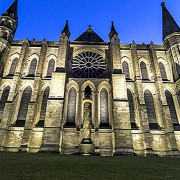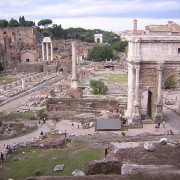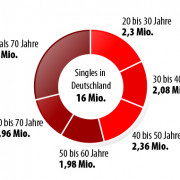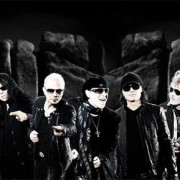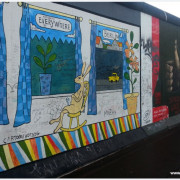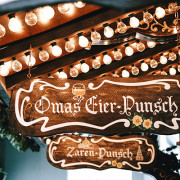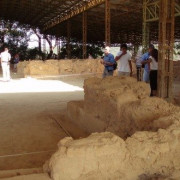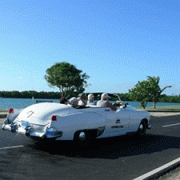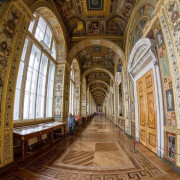Точное время в эберсвальде
Содержание:
Transport
Eberswalde has access to the federal highways (Bundesstraße) B 2 and B 167 and the highway (Autobahn) A 11-E28. Eberswalde station is located on the Berlin–Szczecin railway line that first connected Eberswalde and Berlin in 1842. It is the starting point of the railway lines to Templin and Frankfurt (Oder) and was terminus of the Eberswalde-Finowfurter-Eisenbahn (EFE) to Finowfurt until it was discontinued.
The town and its industrial areas are on the Oder Havel Canal and Finow Canal waterways. The airfield Flugplatz Finow is a former Soviet Air Force base that was handed over to civil use on May 11, 1993.
The town had a tram service until 1940, when the trams were replaced by the trolleybuses. Eberswalde is one of only three towns in Germany where trolleybuses are still in operation, along with Solingen and Esslingen.
Где лучше остановиться в Эберсвальде
Самостоятельное бронирование номера в отеле – удобный, надежный и недорогой способ гарантировать себе
комфортное проживание во время поездки. При онлайн-бронировании будут учтены ваши индивидуальные требования.
За несколько минут вы подберете подходящий гостиничный номер в Эберсвальде и забронируете его через интернет. Для этого вам не потребуется владение иностранными языками, вы не должны звонить в отель и волноваться о конфиденциальности. Мы сравниваем цены на отели и осуществляем поиск более чем по 50 системам бронирования, включая такие сайты как: Booking.com, Hotels.com, Agoda.com, Expedia, Островок.ру, Oktogo.ru, Travel.ru, HotelClub, Lastminute, HolydayInn, Marriot, Accor hotels и др.. Кроме этого, мы ищем свободные номера по тысячам сайтов отелей. В итоге предоставляем вам только лучшие цены на номера в отелях, гостиницах, хостелах и т. п.. Разница в цене на перечисленных сайтах может доходить до 80%, именно такую сумму мы вам и помогаем экономить на аренде жилья.
В нашем списке только лучшие отели Эберсвальда
(Германия), гостиницы, хостелы, виллы, апартаменты, собравшие множество положительных отзывов туристов. На странице вы можете видеть описание отеля, его адрес и расположение на карте. А так же, фотографии отеля, его номеров и прилегающих территорий. Рассмотрите их, и вы составите первое впечатление об отеле. К вашему сведению перечень предлагаемых услуг, информация о классе отеля и о стоимости проживания в нем. Выбрав отель, вы сможете узнать о наличии свободных номеров, и забронировать места без предоплаты, без кредитной карты.
Мы предлагаем отели в Эберсвальде разной
ценовой категории – от премиум-класса до мини-отелей и хостелов (недорогие гостиницы), чтобы каждый смог подобрать подходящий
вариант. Информация в нашем каталоге постоянно обновляется. Планируя поездку, забронируйте номер в одном из
отелей Эберсвальда, и вы избавите себя от лишних хлопот. В выборе вам помогут реальные отзывы тех, кто уже останавливался в данном отеле, и средний балл, выставленный
отелю постояльцами.
Забронировать гостиницу в Эберсвальде по
самой выгодной цене довольно просто, как и отели в других городах Германии.
Для этого вам нужно ввести в форму поиска, дату приезда и отъезда – и вы получите список отелей, достаточно
обширный, чтобы можно было выбрать вариант, подходящий вам по расположению, цене и уровню сервиса.
А дополнительные фильтры поиска, расположенные слева от списка отелей, помогут подобрать наиболее оптимальный вариант, в зависимости от ваших нужд и потребностей.
Economy
Bank Sparkasse Barnim
While Eberswalde was renowned for its thriving heavy industry in the past, since the fall of the wall, it has fallen upon harder times. As the East German government fell, state support vanished, and factories had to suddenly compete with more efficient firms in the West. As a result, many factories in Eberswalde went under, and visitors can see the remnants of these abandoned plants across town. Like many former East German towns, Eberswalde has since struggled with unemployment, and many have left the region in search of work elsewhere. Consequently, many of the huge Soviet-Bloc style apartment complexes in Eberswalde (most notably the Brandenburgisches Viertel) are becoming empty, and are slowly being razed.
Culture
Festivals
Carnival
Compared to other towns of the region, Eberswalde has quite a huge Carnival society. It was brought to Eberswalde from Bavaria and from the Rhineland, both are standing for different Carnival traditions. That’s why Carnival is celebrated in two independent festivals at the same time, they are called Karneval and Fasching.
Rock me Magdalena
Rock me Magdalena is a rock concert in the Maria Magdalena church of Eberswalde, taking place every December 25.
Filmfest Eberswalde
Since 2004 there is the annual Eberswalde Movie Festival for Independent Film and Documentaries.
Culinary traditions
There are some foods that are associated with Eberswalde. The most important of them are Eberswalder Spritzkuchen (a special pastry that was invented 1832 in Eberswalde) and Eberswalder Würstchen (sausages).
Language
The tongue spoken in the region of Eberswalde is often called Eberswalder Kanaldeutsch (canal German). It is not an independent German dialect, but a very extreme mix of the Berlin Dialect and a bit of East Low German. Other forms of Kanaldeutsch, that are derived from the Eberswalde form, nearly developed back to the Berlin Dialect. That’s why Eberswalder Kanaldeutsch is the only one that is in fact sometimes considered as an independent German dialect.
Notable people
Robert Hartig, forestry scientist
- Bernard Altum (1824–1900), zoologist
- Bernhard Danckelmann (1831–1901), forestry scientist
- Hans-Jürgen Döscher (born 1943), historian
- Hans Dresig (born 1937), professor of technical mechanics
- Werner Forßmann (1904–1979), doctor, Nobel Prize laureate
- Robert Hartig (1839–1901), forestry scientist
- Erwin Hagedorn (1952–1972), known as child murderer of Eberswalde
- Ralf Hauptmann (born 1968), football player
- Candida Höfer (born 1944), photographer
- Erich Lindemann (1894–1934), doctor and leading member of the Reichsbund Jewish Veterans and one of the victims of the so-called Night of long knives
- Friedrich Mieth (1888–1944), General of Infantry
- Albrecht Milnik (born 1931), forestry scientist
- Christiane Nord (born 1943), translation scholar
- Wilhelm Pfeil (1783–1859), forestry scientist
- Julius Theodor Christian Ratzeburg (1801–1871), zoologist, entomologist and forestry scientist
- Albert Richter (1909–2007), forestry scientist
- Rudolf Schmidt (1875–1943), city engineer
- Ursula Werner (born 1943), actress
- Paul Wunderlich (1927–2010), painter and sculptor of the Fantastic Realism
- Eva Zeller (born 1923), author
Demography
|
|
|
History
Prehistory
Steel-mill near Eberswalde, Carl Blechen, c. 1830.
The area around Eberswalde was already populated in Paleolithic. Before the establishment of the Margraviate of Brandenburg it was the place of a Slavic stockade. The Treasure of Eberswalde, the largest pre-Christian gold treasure from the area of today’s Germany was found here. Today the treasure is located in the Pushkin Museum in Moscow.
Founding and development
The town of Everswolde («forest of the boars») was established in 1254 by the Ascanian margrave Johann I. It was first mentioned in a document dated April 23, 1276 when margrave Albrecht III. resided there. In 1300 it received market rights. From the year 1317 the main trade route between Stettin and Frankfurt (Oder) went through the city. A major fire struck the city in 1499.
After rebuilding the town, Eberswalde became the first industrial town of the Margraviate of Brandenburg, with huge metallurgy capacities. Some parts of the town are still named from their past function, like Kupferhammer («copper hammer»). 1605 till 1620 the important waterway Finow Canal was built.
Thirty Years’ War
During the Thirty Years’ War Eberswalde was besieged and conquered several times by nearly every important faction of the war. The general of the Catholic League, Albrecht von Wallenstein, resided in the town, later Gustavus Adolphus of Sweden, who did not survive the battle of Lützen, was embalmed in the town’s Maria Magdalena church. Both parties forced the town population to support their troops. After the end of the war only twenty inhabitants of Eberswalde were still alive, and Eberswalde needed more than a century to recover from its losses.
Rebirth and growth
Between 1743 and 1755 120 families of metalworkers moved from Thuringia and the Rhineland to Eberswalde. The boilers of the first German steam engines were made here. During the 19th century large factories were built in the area of Eberswalde, especially along the Finow Canal. In 1830 it became the site of what is now the Hochschule für nachhaltige Entwicklung Eberswalde. On November 23, 1877 the first German telephone line was established in the town.
20th century
The world’s first radio concert was broadcast from Eberswalde in 1923. Werner Forssmann received his 1956 Nobel Prize in Physiology or Medicine for his 1929 experiments with cardiac catheterization performed on his own heart, whilst resident in Eberswalde.
In the 1938 pogroms, Eberswalde’s synagogue was destroyed. During World War II, several factories employed forced labourers and inmates of the Ravensbrück concentration camp. At the end of the war, the town center was attacked by the German Luftwaffe, in an attempt to delay the Soviet advance. After learning that Soviet forces have taken Eberswalde without a fight, Adolf Hitler admitted defeat in his underground bunker and stated that suicide is his only recourse.
In 1970 Eberswalde was merged with the settlement of Finow to create Eberswalde-Finow. In 1993 the name Eberswalde was restored.
История
Впервые упоминается (как Эверсвальде) в документах маркграфа Альбрехта III 23 апреля 1276 года. проживал там. В 1300 году он получил право свободной торговли. В начале XIV века город был укреплен крепостной стеной с четырьмя воротами и двойными валами и рвами. В 1499 году был уничтожен пожаром, но после восстановления стал крупным промышленным центром маркграфства Бранденбург; к 1532 году в городе появилось несколько кузниц, заводы по производству жести, проволочных изделий, бумажная фабрика, суконные мануфактуры и кирпичные заводы. Постройка Финов-канала (1605—1620), соединившего Одер и Гавел, сделало город важным пунктом на этом водном пути. Город сильно пострадал во время Тридцатилетней войны: в 1635году в городе осталось всего двадцать жителей, и только к 1722 число жителей достигло довоенного уровня — 1200 человек. В середине XVIII века город пережил новый экономический подъём; был реконструирован Финов-канал; в 1785 году в Эберсвальде был произведён котел для первого в Германии парового двигателя. В 1830 году в Эберсвальде перенесена Берлинская лесная академия. В XIX веке здесь бурное развитие получила промышленность: появились чугунолитейные, новые машиностроительные и металлообрабатывающие производства; появилась железная дорога — 30 июля 1842 года было введено в строй сообщение с Берлином, 15 августа 1843 года — с Штеттином; 23 ноября 1877 года стала действовать первая немецкая телефонная линия — между Эберсвальде и Финовфуртом. В 1914 году был сооружен Гогенцоллерканал, сейчас Одер-Хайфель-канал. В 1923 году из Эберсвальде впервые в мире состоялась радиотрансляция концерта. В апреле 1945 года город подвергся разрушительной бомбардировке. В послевоенные годы в Эберсвальде располагался штаб 4-й танковой армии, участвовавшей в операции по взятию Берлина, командующий генерал Д. Д. Лелюшенко. В 1947—1949 годах, вместе со служившим там отцом, в гарнизоне жил маленький Володя Высоцкий.
В 1970 году, когда Эберсвальде был объединён с Финовом, появилось название: Эберсвальде-Финов. 1 июля 1993 года город получил официальное название Эберсвальде.
